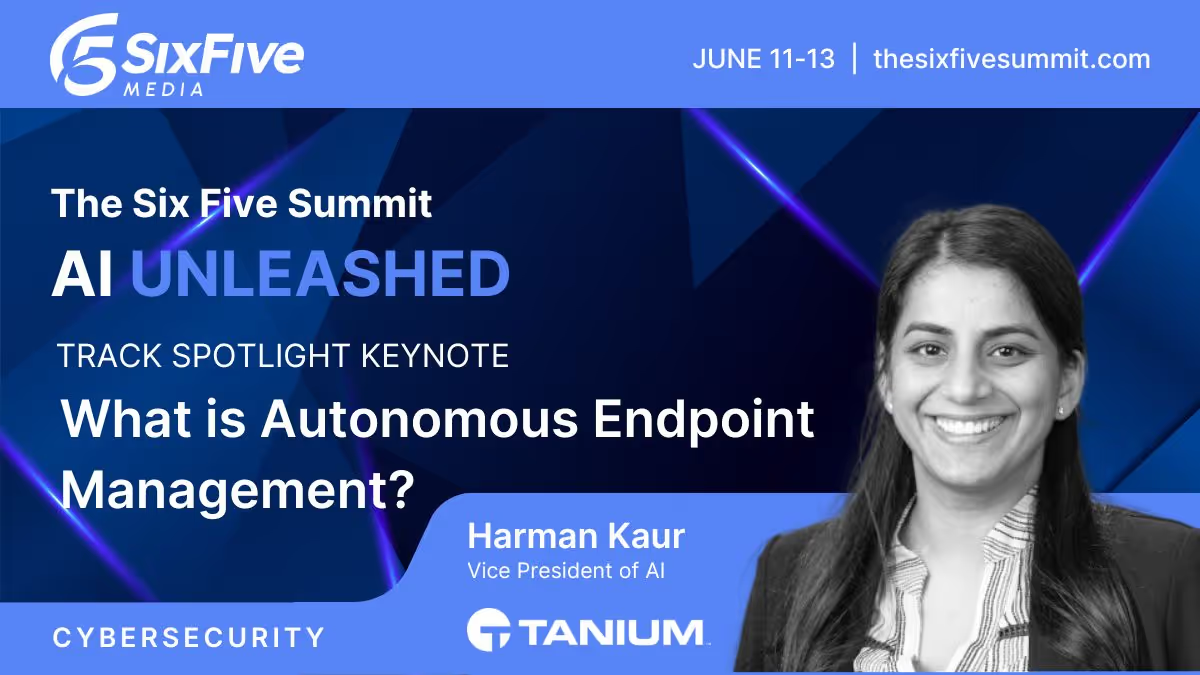From Oracle AI World 2025 - The Multicloud Surge and How is Oracle Leaning in
Nathan Thomas, VP Multicloud at Oracle, joins host Patrick Moorhead to share insights on Oracle's surging multicloud solutions, new Universal Credits, and partner innovations, offering a snapshot of where the company sees multicloud opportunities accelerating.
With its renewed momentum and revenue growth, how is Oracle driving the next phase of its multicloud strategy and simplifying enterprise adoption?
From Oracle AI World 2025, host Patrick Moorhead is joined by Oracle Cloud Infrastructure’s Nathan Thomas, Vice President, Multicloud, for a conversation on Oracle’s multicloud strategy. The discussion focuses on key developments driving Oracle’s multicloud surge, including the expansion of the Oracle AI Database services on OCI across major clouds, the introduction of Multicloud Universal Credits, and partnerships aimed at accelerating customer value.
Key Takeaways Include:
🔹Rapid Expansion and Adoption: Oracle Database services on OCI are operational in 38 regions across AWS, Azure, and Google Cloud, with 34 more coming online in the next year, reflected in their multicloud revenue growth of 1,529% over the latest quarter.
🔹Multicloud Universal Credits: Oracle’s new licensing model provides flexibility for customers to adopt services across multiple clouds, streamlining consumption and cost management.
🔹Enhanced Partner Programs: New partner initiatives for Oracle multicloud solutions are designed to create mutual benefits, simplify the reselling process, and supporting joint customer success by expanding multicloud offerings.
🔹Marketplace and Partner Feedback: Partners at Oracle’s recent summit expressed positive feedback, noting greater opportunities and improved tools for supporting diverse customer needs.
🔹Future Focus: Oracle’s roadmap emphasizes continued innovation in multicloud integration, a broader regional rollout, and deepening relationships with hyperscalers.
Learn more at Oracle.
Watch the full video at sixfivemedia.com, and be sure to subscribe to our YouTube channel, so you never miss an episode.
Or listen to the audio here:
Disclaimer: Six Five Media is for information and entertainment purposes only. Over the course of this webcast, we may talk about companies that are publicly traded, and we may even reference that fact and their equity share price, but please do not take anything that we say as a recommendation about what you should do with your investment dollars. We are not investment advisors, and we ask that you do not treat us as such.
Patrick Moorhead: The Six Five is On the Road here in Las Vegas at Oracle AI World 2025. And yes, make no mistake, there was a ton of AI content here. We're looking at advanced infrastructure, we're looking at agents, we're looking at enterprise SaaS and the future used by AI features that are built into the products themselves without an extra charge. And of course, one of my favorite topics, this actually combines the two and it's multi cloud. Ten years ago, my company went out on a limb and said multi cloud is going to be the future. Why? Because this is just what enterprises want. People called us cloud deniers. No, we weren't. I used to work in the cloud business. Wasn't denying anything, but it just made sense. And one of the companies, one of the first companies to really lean into this was Oracle in a variety of ways, whether it's multi cloud networking, but most important, multi cloud databases. Oracle databases are sitting inside of every major hyperscaler out there, giving the customer choice on where they want to deploy Oracle database. And to talk about this, some announcements here at the event. Nathan, nice to meet you.
Nathan Thomas: Nice to meet you as well.
Patrick Moorhead: First time on the pod. This is great. Allowed me to do my victory lap on multicloud. Thank you for being the insightful company here.
Nathan Thomas: Absolutely. Yeah. We're very excited to see Multi cloud turn from something I think customers understood was happening to something that the actual cloud vendors are working together to make a reality. So our partners, Google, Azure, AWS are all working with us to make sure that those database products are well integrated in their environments and customers are getting real value from that. It's very exciting.
Patrick Moorhead: Yeah. So you have multiple regions, 38 regions in fact, that live across the big hyperscalers, including yourself. So I include that in 4, 34 more planned for the next 12 months. Why the acceleration? Why the investment here?
Nathan Thomas: Yeah, so the real value of the multi cloud products, the database app products with these vendors, is that it puts that Exadata hardware sitting inside of a child site at those CSP locations, very low latency connectivity into those applications that customers are building inside of those partner cloud ecosystems that has to have that database in the regions the customers are operating in. That means that we've got to go and support a wide range of them. So the single biggest thing our customers need moving forward is to make sure that those database products are living right next to where their applications are inside those clouds.
Patrick Moorhead: Yeah. I have to admit, when I saw, when Larry Ellison did the first announcement, I was watching on video. And the notion it's one thing to put software into somebody's cloud, a lot of companies do that. But to put a piece of infrastructure into somebody else's cloud had really never happened before. And there were a lot of people that didn't fully understand the gravity of that. I kept thinking to myself, oh my gosh, okay, Oracle has won, Oracle Database has won. And I know there's a lot of databases and what is winning, but it was a huge deal and now you're even making it bigger. One of the things that I also cited when you did this was, well, wait a second. If you buy in that the average large enterprise has 2.8 cloud vendors, by the way, that the 0.8 averages, of course, where do I put my investment? Right? It's like maybe I misjudged forecasts of how much I wanted to put into aws. But what you announced here were multi cloud credits. Tell me how this works.
Nathan Thomas: Yeah, so multi cloud universal credits are a simplification mechanism for customers. So it means that they can do a contract with Oracle, just one, and it means that they can actually have a single aggregated commit across all of the different vendors they're working with. And so from the customer's perspective, this was obvious. That is, I'm buying a database, why am I doing separate agreements? Right, right. And so this really kind of makes that a reality for them. So they can now take those credits and then use them as they see fit as their growth happens across all of the different cloud vendors that they work with.
Patrick Moorhead: Yeah, it's so funny, some of the things that seem so. Well, of course, but it's actually what you're doing on the back end is actually quite complex. But the customers are just like, okay. First of all, I don't want to do all these agreements and oh my gosh, I under forecasted this csp, I over forecasted this and of course I can slosh those credits in here. So what you've done seems very simple, but I know because I used to have a real job is actually quite challenging here.
Nathan Thomas: Yeah, well, we kind of feel like it's in that category of things where the more complicated a problem is for a customer to solve, the more value it is if we can solve it for them. And so that effort is real, but it's definitely the right thing to help that customer.
Patrick Moorhead: Yeah, a lot of a sign of growth. I mean, you can have a direct sales force that directly sells things, but to truly scale, you need that, you need a channel and you need partners. And it's a combination of GSI's, maybe some specialty type of partners out there. How are you rolling out this capability, let's say with your partner program or something like that?
Nathan Thomas: Yeah, so we just announced an extension of our partner capabilities for resellers in our marketplace offerings with our cloud partners. So if you go through the Google Marketplace, the Azure Marketplace or the AWS Marketplace and you are a GSI, a reseller, a VAR or a VAD, you can now participate in those private offers that are getting written. So this means that the partners that our customers really rely on to do migrations, to do enablement, to do ongoing maintenance, and just even for purchasing are now part of those transactions, part of those deals. And it is a huge unblocker, I think, for them to be successful with a database app.
Patrick Moorhead: So definitely a win for the partners. Let's talk about how it is a win for the end customer?
Nathan Thomas: So a lot of our customers tell us that they have trusted partners who are their primary vehicles for either purchase or for deployment and operations of their cloud assets. And so for them, if we don't have it, they simply can't take advantage of the product. We want to see those customers be successful moving those databases into the cloud of their choice, leveraging the data, typically the most important data in their company, inside of those databases so they can plug into new AI pipelines, plug into Bedrock, plug into Vertex, make that data do more work for you in the AI. To do that, they're using partners and we've got to enable them to be part of that transaction too.
Patrick Moorhead: At your event, I think it was yesterday or maybe sometime this week. Did you talk about any KPIs or goals when you rolled this out?
Nathan Thomas: So for us, it really is about seeing more customers succeed in growth and direction and see that kind of partner ecosystem start to deliver on customers. Actually increasing usage, increasing success rates. I don't have a hard number to give you there, but I think we're looking for that growth rate.
Patrick Moorhead: Yeah, just what you said on stage or what was said. I understand. So you have your partner summit. Okay, I'm curious and I think the watchers and listeners would be curious about what kind of feedback you are getting? And you know, I really want to hear a combination of, you know, this is what they liked. This is something that was like, huh? Okay, hey, thank you for the feedback and we'll get back to you. Talk to me.
Nathan Thomas: Yeah, so I think obviously the general reaction to that announcement was positive. People were very excited to be able to participate. I had a couple of conversations with smaller GSI's or smaller SIS who were surprised that this was something they could take advantage of. They said, oh, is this just a. Just Deloitte, you know? No, it's for everybody who can be part of that. Right. It's part of the kind of, I think power of those marketplaces that's become the default fulfillment mechanism. And so it's really nice for everybody to be able to participate. There are nuances. People have lots of detailed questions trying to think about flow and edge cases and so we'll sort through those as we hear them. But I think we're going to be pretty unblocked.
Patrick Moorhead: Yeah. And it seems like particularly the smaller ones who maybe didn't know or weren't participating in what I like to call the AI trade, you're actually bringing them into the fold where it's not just the largest partners who can do transformations because you have to modernize before you get to the AI. And it seems like they would want to participate in this as well. And there maybe could have been some anxiety around that.
Nathan Thomas: Yeah, I think that's entirely true. We're also seeing that they are surprised that they can now participate across all of our CSP partners. So that is, some of these folks are a little bit more specialized in the individual ones, but now their customers are saying, hey, I need a database inside of my. All three of these, as you say. And so that is an unblocker for them as well, for their growth.
Patrick Moorhead: Yeah. So it's hard to believe that in such a short period of time, you started off with a CSP announcement . I'll call it an alpha and beta program to general availability and then adding two more of the largest global CSPs. You've expanded your partner presence, you've made it easier for your end customers to consume all of those credits where they want to, which is very customer centric. What are you going to be focused on for the next 12 months? I'm not asking you to pre announce anything, but if you'd like to, you can on the platform. But what are you going to be? What's your focus?
Nathan Thomas: A few different areas. One you already mentioned. Right. We're at 38 regions, we're growing to 72. You know, we're putting physical servers in data centers as you call that. There's real work behind that and our partners are great. They're really helping us do that and investing in making that happen to meet the customer's needs. That's pretty important. Expanding the database set. So we've kind of continually had a drumbeat of new databases in regions with CSPs, so across base DB, across autonomous databases, across Exadata, across exascale. So you'll see that continue to happen apace. Then I think you're going to see us focus on some other interesting integrations, particularly on the AI side. We think there's a real opportunity there to make sure that those partners that we built, such as Google, so that AWS, so that Azure feel like they're getting integration value out of customers plugging in through the vector embedding capability and hybrid search capability for the database with 26 AI. The other thing I'll say that's kind of exciting is you start to see the relationship pattern in a different way. Where we see things like Gemini 2.5 is now showing up instead of OCI GenAi. Right. So it's coming the other direction, those relationships now that we start to have them turn multi clouds from a concept into a reality.
Patrick Moorhead: Yeah. And the whole notion of sovereign cloud gets super interesting as well here. So, Nathan, any final words for your customers, for your partners out there that maybe we didn't cover or maybe you want to put an exclamation point on?
Nathan Thomas: Yes. Well, I'll just simply say we're ready to go. You know, I think we've got customers scaling up today. We talked about some of the revenue growth we saw in the fiscal, you know, over 1,500%. You know, we're seeing a significant inbound demand. We're seeing real success. Customers are going to production now. So I think it's the time.
Patrick Moorhead: Excellent. Nathan, thank you so much for your time and hopefully we can have you back on the show, I don't know, in a year to see where we are on this map app.
Nathan Thomas: Very excited about that.
Patrick Moorhead: Excellent. Thank you. This is Patrick Moorhead with The Six Five here at Oracle AI World 2025 in Las Vegas. Talking about my two favorite topics here, AI and multicloud. You got a twofer today. Check out all of our Oracle content out there and also check out all of our multi cloud content out there as well. Thank you very much. Hit that subscribe button. Take care.
MORE VIDEOS
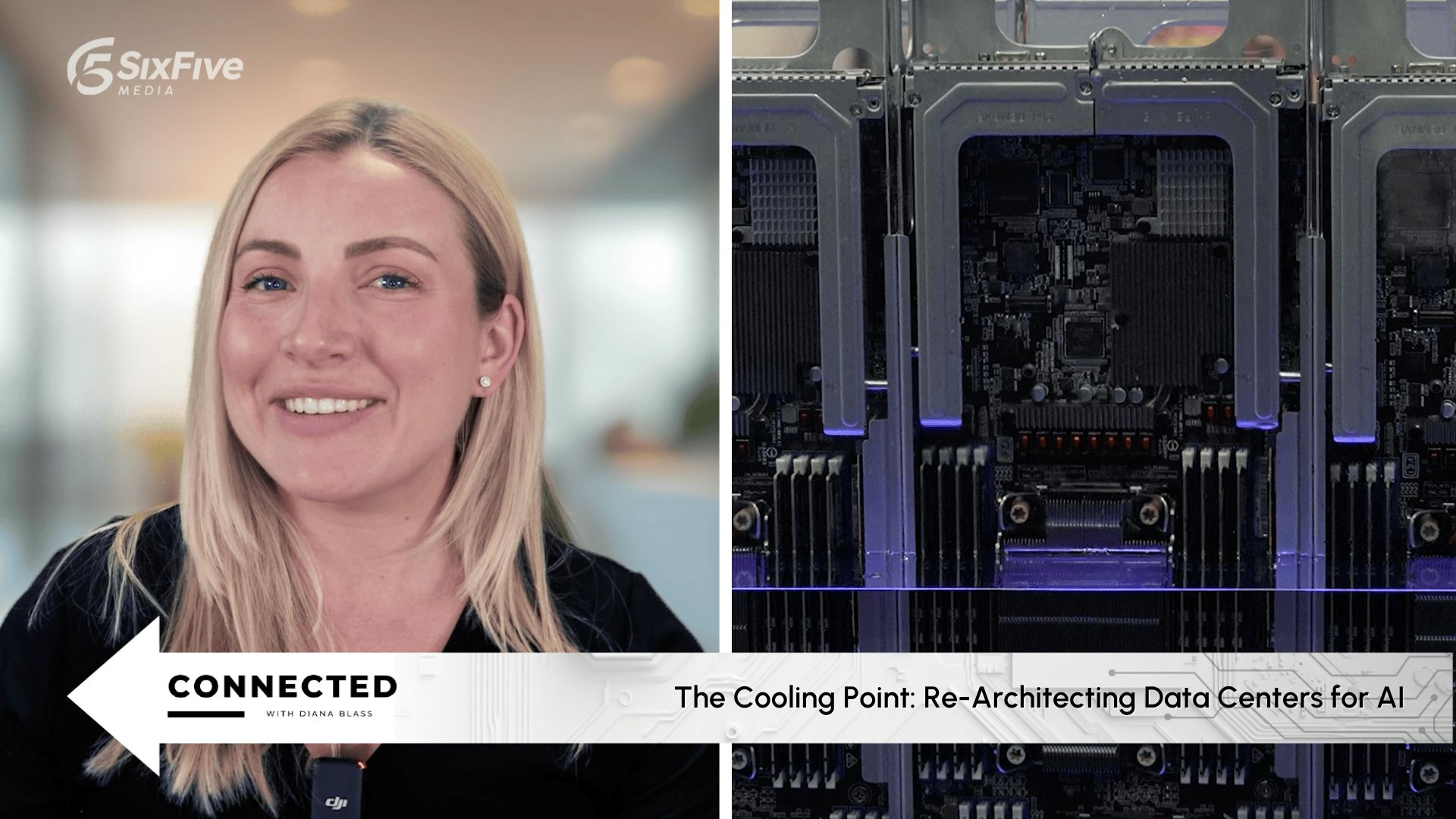
The Cooling Point: Re-Architecting Data Centers for AI - Six Five Connected with Diana Blass
Avi Shetty, Hecheng Han, Dr. George Zhang, Neil Edmunds, John Griffith, Josh Grossman, and Francesca Cain-Watson join Diana Blass to discuss the evolution of liquid cooling in AI systems, exploring design tradeoffs, architectures, and deployment strategies.
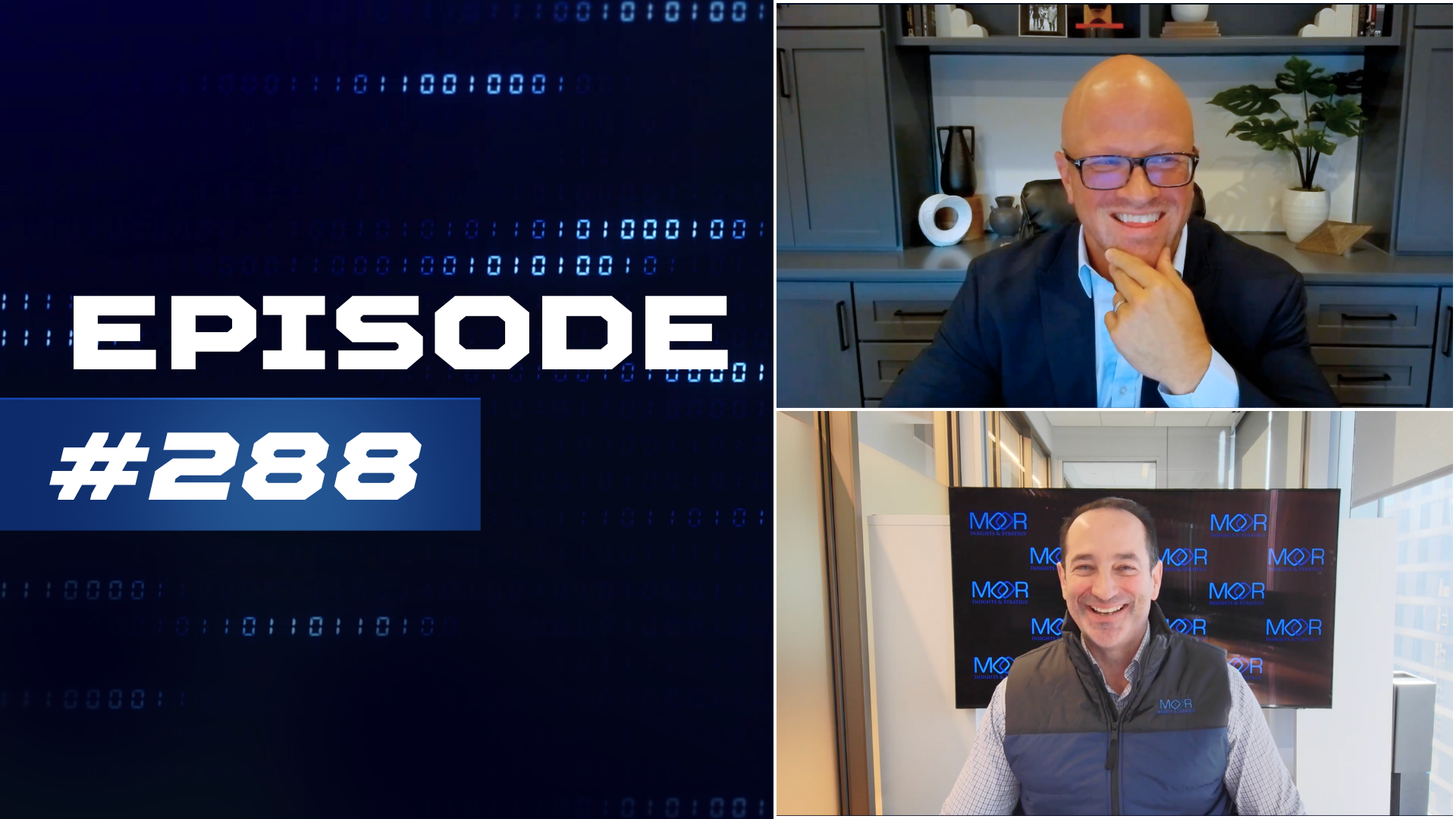
The Six Five Pod | Ep. 288: OpenAI’s Valuation Debate, Marvell’s Network Bets, and the Next Bottlenecks for AI Growth
This week, Patrick Moorhead and Daniel Newman unpack why today’s AI moment feels less like the endgame and more like Netflix’s DVD-by-mail phase—the very beginning of a transformation that will redefine the tech industry. They dig into soaring AI valuations and the growing debate over whether today’s leaders signal durable platforms or bubble dynamics, then shift to what really matters under the hood—AI infrastructure, with a sharp focus on networking and memory, informed by insights from Marvell’s Industry Analyst Day. This episode also breaks down recent market moves across major tech players, before closing with a forward-looking take on where AI is headed and what it will take to stay competitive as the pace of change continues to accelerate.
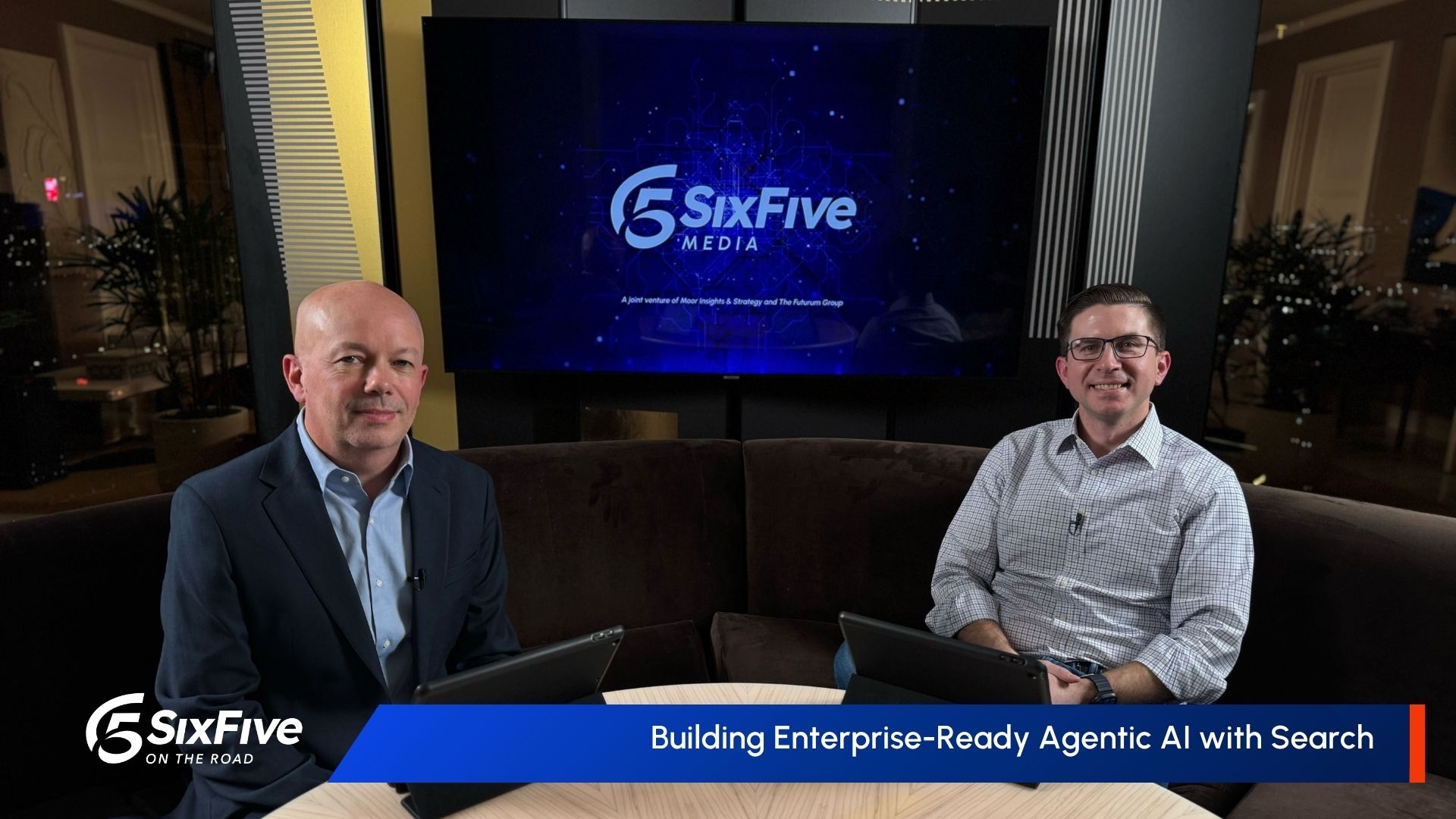
Building Enterprise-Ready Agentic AI with Search - Six Five On The Road
Steve Kearns, GM of Search Solutions at Elastic, joins Nick Patience to share how Elastic is enabling enterprises to move from RAG to agentic AI, solving operational challenges, and powering the next generation of autonomous workflows.
Other Categories
CYBERSECURITY
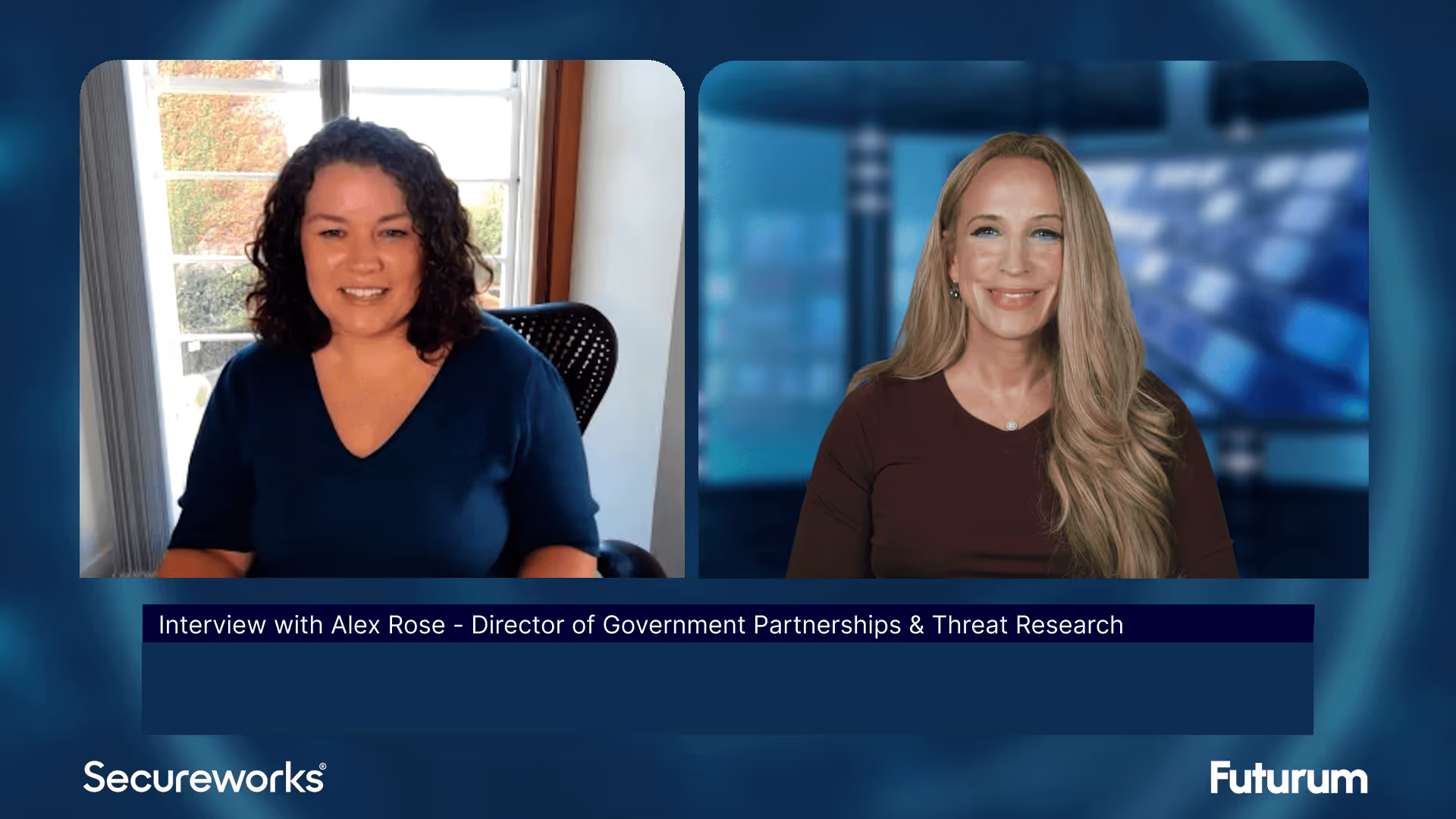
Threat Intelligence: Insights on Cybersecurity from Secureworks
Alex Rose from Secureworks joins Shira Rubinoff on the Cybersphere to share his insights on the critical role of threat intelligence in modern cybersecurity efforts, underscoring the importance of proactive, intelligence-driven defense mechanisms.
QUANTUM
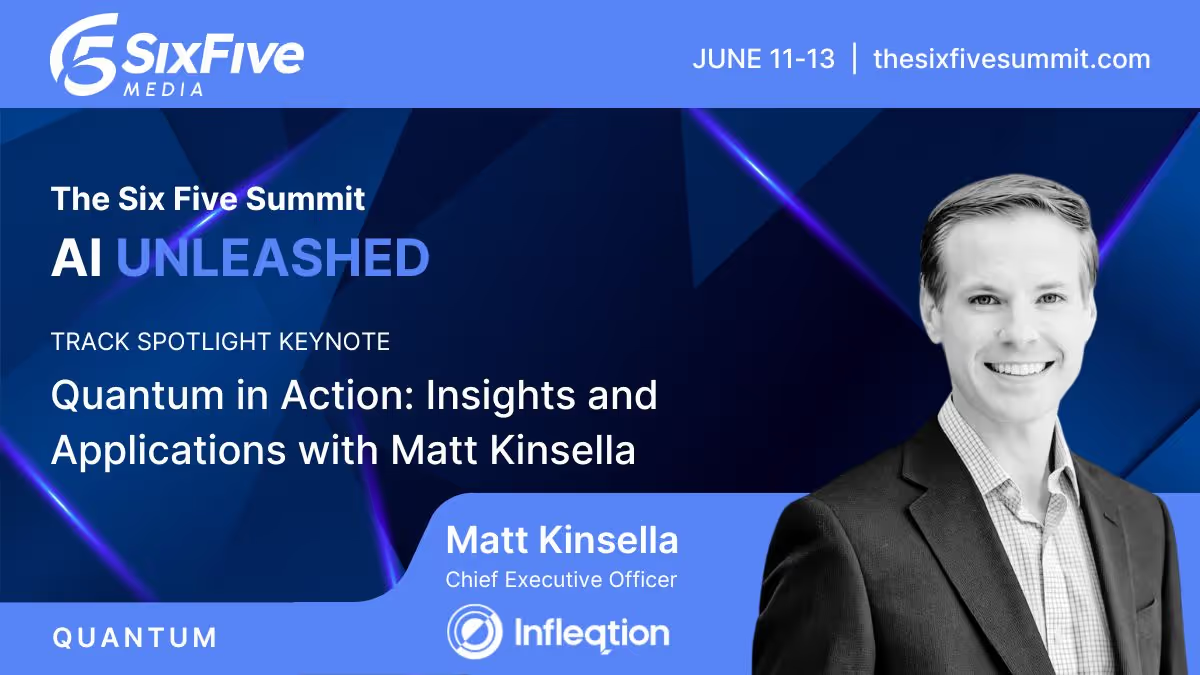
Quantum in Action: Insights and Applications with Matt Kinsella
Quantum is no longer a technology of the future; the quantum opportunity is here now. During this keynote conversation, Infleqtion CEO, Matt Kinsella will explore the latest quantum developments and how organizations can best leverage quantum to their advantage.
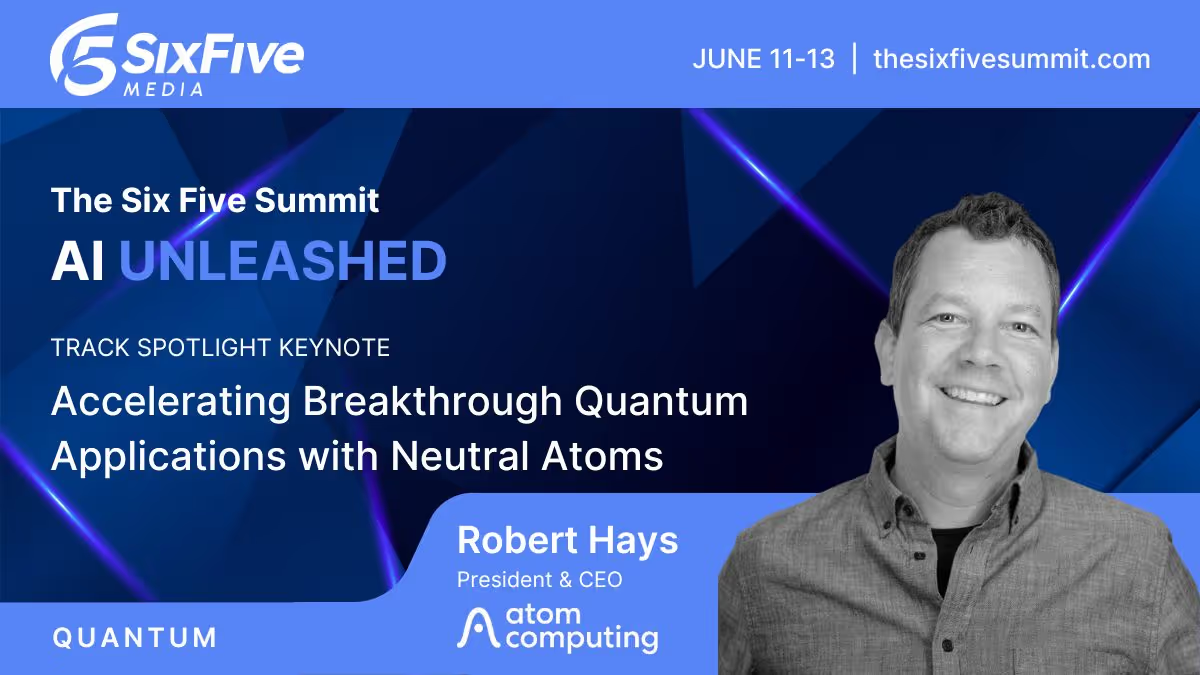
Accelerating Breakthrough Quantum Applications with Neutral Atoms
Our planet needs major breakthroughs for a more sustainable future and quantum computing promises to provide a path to new solutions in a variety of industry segments. This talk will explore what it takes for quantum computers to be able to solve these significant computational challenges, and will show that the timeline to addressing valuable applications may be sooner than previously thought.




